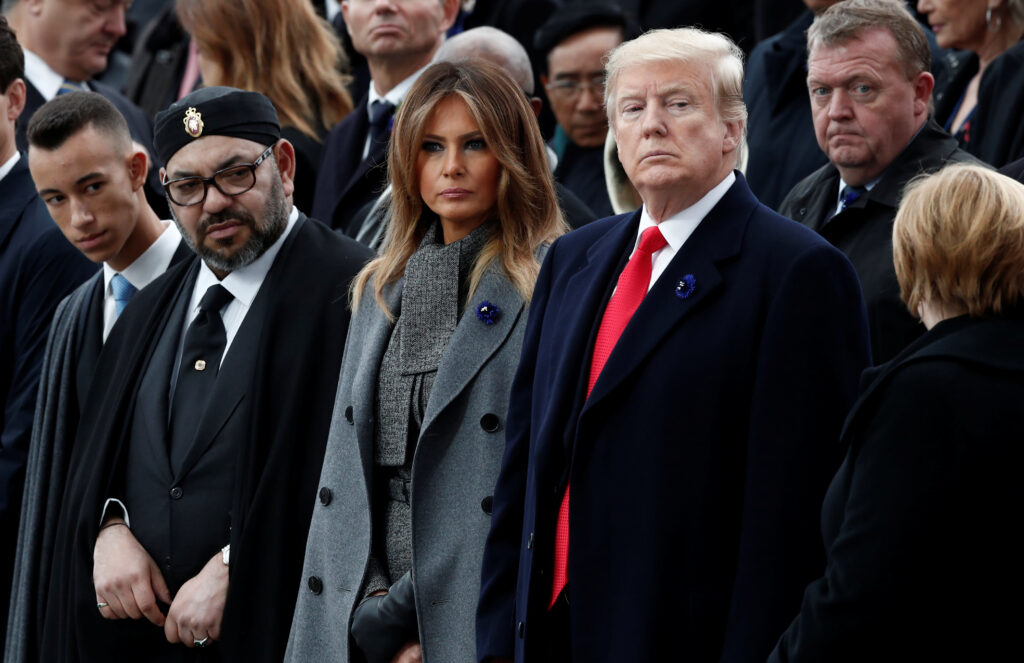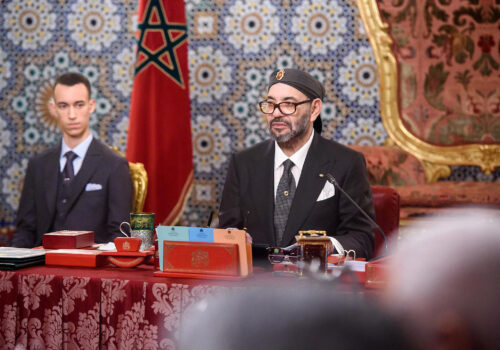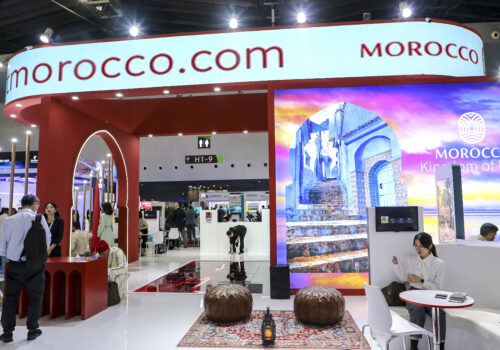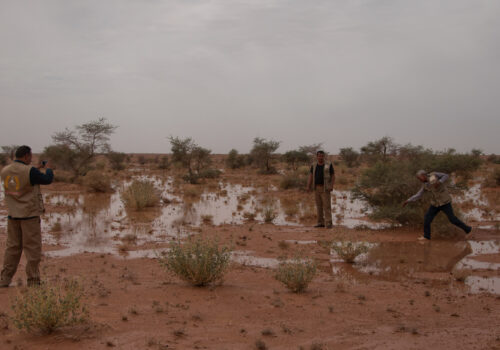President-elect Donald Trump’s victory bodes well for US-Morocco relations. As King Mohammed VI recalled in his statement congratulating Trump on his election win, during his first term, Trump recognized Rabat’s full sovereignty over the disputed territory of Western Sahara. Trump made this recognition with a presidential proclamation on December 10, 2020, in exchange for Morocco reestablishing diplomatic relations with Israel. In his statement, Mohammed VI went on to say that “the Moroccan people will forever be grateful” for this recognition, calling Washington “our longstanding friend and ally.”
While Morocco hopes to pick up where it left off in negotiations with the incoming administration, Trump’s more pragmatic and transactional approach to foreign policy indicates that he would look to Rabat for something in exchange for renewed support of Moroccan sovereignty over Western Sahara and the opening of a consulate in Dakhla to seal the deal. The political climate in Morocco around normalization with Israel, however, has shifted since the outbreak of the war in Gaza, and the Abraham Accords seem to have lost momentum among most Arab states, which are fearful of angering their populations and have moved to a more discreet approach to their dealings with Israel. What deepening collaboration with Morocco can offer the United States, however, is the chance to thwart Iran’s ambitions in North Africa and the Sahel and unlock lucrative investment opportunities in the region for US companies.
What Morocco wants from the US
What Moroccan officials hope for in Trump’s second term is an end to what they viewed as an ambiguous policy toward their country under the Biden administration. The Biden administration has attempted to balance historical US-Morocco ties and joint security interests on the one hand and, on the other, Washington’s transatlantic responsibility to ensure the continued flow of Algerian gas to Europe to substitute for dwindling Russian energy supplies. This has meant treading a careful line between the official US position on Western Sahara and Washington’s relations with Algeria, which strongly opposes Morocco’s claim to the region and hosts the Polisario Front separatist group on its soil.
The Biden administration reversed the Trump administration’s 2020 decision to open full diplomatic representation in Western Sahara, opting instead to open a virtual consulate. Biden also showed reticence toward the Moroccan proposal of hosting the second Negev Forum between Israel and its Arab partners in the disputed territories of Western Sahara. The forum was postponed multiple times until the eruption of the Israel-Hamas war, after which Rabat completely altered its public messaging on normalization.
The current administration’s approach of keeping Morocco at arm’s length risks prolonging the fifty-year-long Western Sahara dispute and allowing Iran to gain influence in the region at Morocco’s expense. Thus, the incoming administration should reinvigorate US-Morocco security and economic ties to bolster security in the Sahara.
Iran’s regional ambitions
Since reestablishing ties with Israel in 2020, Moroccan decision makers have struggled to articulate that this move was never meant as opposition to the two-state solution or a distancing from its support for the Palestinian people. Rather, it was intended as a strategic move to ally with other countries opposed to Iran to thwart the Polisario Front, the pro-independence movement in Western Sahara that receives funding and weapons from Iran. Iran’s backing for the Polisario Front—and Algeria’s role in transferring Iranian drones to the group, according to Moroccan officials—presents a security threat in the Sahara and the Sahel that threatens to destabilize the entire region and unleash unprecedented migration flows into Southern Europe.
After the Gaza war broke out, millions of Moroccans took to the streets in solidarity with the Palestinians, but officials in Rabat read the conflict differently. They saw the threat from Iranian proxies in the damage that Hamas, Hezbollah, and the Houthis were able to inflict on Israel and on global maritime trade. Among Moroccan officials, these developments sounded the alarm of what a potential Iranian proxy militia in Western Sahara could do. This brought Israel and Morocco closer together and was translated into a one-billion-dollar satellite deal and a rare drone manufacturing collaboration, among other ambitious intelligence and security partnerships.
Nevertheless, the kingdom chose to temper public-facing exchanges with Israel because of the dissonance between Moroccan governing elites and an increasingly heated public opinion. This public sentiment is fed by the religious, historical, and linguistic affinities between the Palestinian and Moroccan people but also by the political opportunism of Islamist parties that are instrumentalizing the Palestinian cause to undermine the government of Moroccan Prime Minister Aziz Akhannouch. Recent violent clashes between members of the Moroccan community in Amsterdam and visiting Israeli soccer fans are another worrying indicator that Moroccan popular sentiment remains largely against normalization.
Meanwhile, tensions in Western Sahara are rising. With the restoration of ties with Israel in 2020, confrontations escalated in Western Sahara, especially after Moroccan forces reannexed the Guerguerat checkpoint on the borders with Mauritania, which was becoming a worrying hot spot for smuggling, human trafficking, and terrorist activities, according to Moroccan officials. Emboldened by the Gaza conflict, Polisario militants tried to capitalize on the favorable public sentiment toward self-determination and started carrying out regular shelling in the Moroccan-controlled territories Smara and Al-Mahbes. Iran, meanwhile, found the Polisario Front to be a favorable ally to further its geostrategic ambitions to gain a foothold on the Atlantic and get closer to Western Europe and the Mediterranean.
A compelling case for US-Moroccan ties
The realignment of other US allies behind Morocco, such as Spain, Israel, and France, reaffirms the imperative of standing together collectively to end the possibility of a third front, in addition to Ukraine and the Middle East, with Russian- and Iranian-backed militias in North Africa and the Sahel. This would cause tremendous risks for regional escalation, especially as Algeria continues its rapprochement with Iran and repeatedly claims that there are parallels between the Palestinian and the Western Saharan causes—although historical and anthropological realities say otherwise. Some experts even declare the Western Sahara conflict over, with the two former colonizers, Spain and France, having supported the advanced autonomy plan that Morocco proposed (and which the United States also supports) as the only serious way to resolve the dispute.
The incoming Trump administration has a historic opportunity to turn the page once and for all on this conflict and thwart any ambitions of expansion by the “axis of aggressors” in North Africa. The incoming president’s skepticism for supranational institutions might provide enough firmness to forge a pathway for the United Nations (UN) to adopt a better approach to this conflict, especially after the proposal by the UN envoy for Western Sahara, Staffan de Mistura, to partition the territories between Morocco and the Polisario Front—a plan that is reminiscent of the very colonial “lines in the sand” approach that led to this conflict in the first place. The United States has an opportunity to veto the renewal of the mandate of the United Nations Mission for the Referendum in Western Sahara (MINURSO), which has proven to be ineffective, as well as to pressure the UN to change its overall policy toward the conflict, since a referendum on Western Saharan independence is no longer on the table.
It is also in the US interest to incentivize the countries of the region by joining France in investing in Morocco’s aspiring Atlantic Initiative, which aims to offer landlocked Sahel countries mobility and trade access to the Atlantic Ocean through the $1.2 billion Dakhla harbor megaproject to make the region more economically integrated and less prone to rivalry and conflicts. The economic opportunities for US companies are also immense, given Morocco’s longstanding free trade agreement with the United States and the country’s vibrant car and aeronautics industries, in addition to large deposits of phosphate and cobalt necessary for the mass production of lithium batteries. Likewise, the incoming administration might consider reviving Senator Dan Sullivan’s proposal to transfer the headquarters of US Africa Command from Stuttgart, Germany, to Morocco to deter any destabilization attempts and build on the military partnership initiated through the joint African Lion exercises, which take place in part in Western Sahara. Additionally, from a military perspective, Morocco’s history with the United States during World War II and its geographic proximity to West Africa, the turmoiled Sahel, and the Mediterranean offer a better geostrategic positioning compared to other contenders for the relocation of US Africa Command, such as Kenya.
The Western Sahara conflict might not be at the top of the new Trump administration’s list of priorities. Still, there are compelling reasons to reinforce the United States’ security and economic partnership with Morocco and help reach a resolution to this “forgotten conflict” before it comes to haunt Washington and its allies.
Sarah Zaaimi is a resident senior fellow for North Africa and deputy director for communications at the Atlantic Council’s Rafik Hariri Center and Middle East Programs.
Further reading
Thu, Aug 1, 2024
France has sided with Morocco on the Western Sahara. How might Algeria respond?
New Atlanticist By Sarah Zaaimi
France’s endorsement of a Moroccan autonomy plan follows similar positions expressed by the United States in 2020 and Israel in 2023, along with a growing list of Arab and African nations.
Mon, Jul 1, 2024
Diversification and growth: How the US-Morocco FTA boosts Rabat’s modern trade
MENASource By Amin Mohseni-Cheraghlou
With sustained commitment and strategic planning, the next twenty years can bring even more prosperity and development for the Moroccan economy and greater profits for US businesses operating in the kingdom.
Thu, Jun 6, 2024
Algeria’s Morocco obsession has killed reconciliation prospects
MENASource By
For nearly five decades, Algeria has used the dispute over Western Sahara as a front for its antagonization of Morocco.
Image: US President Donald Trump, first lady Melania Trump, Morocco's King Mohammed VI and his son Crown Prince Moulay attend a commemoration ceremony for Armistice Day, one hundred years after the end of the First World War at the Arc de Triomphe in Paris, France, November 11, 2018. REUTERS/Benoit Tessier/Pool.



